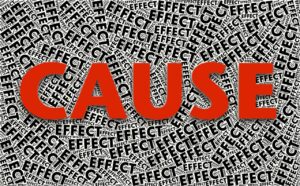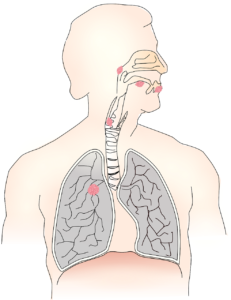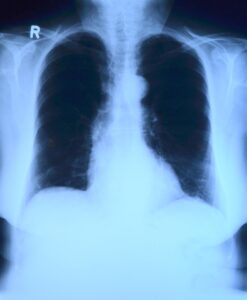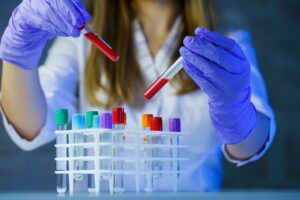What is Cancer?
Here in this article What is Cancer?-Types-and-Treatment Naturally Cancer is a broad term that refers to a group of diseases where cells begin to grow uncontrollably. Normally, cells grow, divide, and die in an orderly manner. However, cancer cells do not die when they should. Instead, they continue to multiply and spread, leading to the formation of tumors. These abnormal cells can invade surrounding tissues and spread to other parts of the body through the blood and lymphatic system. Over 100 different types of cancer exist, each with distinct characteristics, but they share the common trait of uncontrollable cell growth. The causes and treatment options vary depending on the type and stage of cancer. Here in this blog we will discuss what is cancer? types, and treatment naturally.
Symptoms of Cancer 
According to the blog What is Cancer?-Types-and-Treatment Naturally. The symptoms of cancer can differ widely depending on the type and location of the disease. Common signs include unexplained weight loss, fatigue, persistent pain, changes in skin appearance, and unusual lumps or growths. Some cancers cause specific symptoms related to the affected organs, such as persistent coughing or difficulty swallowing. If you notice persistent changes in your body, it’s important to seek medical advice. Early detection increases the likelihood of successful treatment. Keep in mind that many of these symptoms can also be related to non-cancerous conditions, which is why a thorough medical examination is essential.
Causes of Cancer 
Cancer occurs when mutations happen in the DNA of cells. These mutations can be caused by various factors, including environmental influences, lifestyle choices, and genetic inheritance. Smoking, for example, is a leading cause of lung cancer, while excessive alcohol consumption can increase the risk of liver and mouth cancers. Other risk factors include exposure to harmful chemicals, radiation, and viruses. In some cases, cancer can develop without any clear external cause, indicating the complexity of its origins. Although some people may inherit genes that increase their risk, lifestyle changes can help reduce cancer risks in many cases. All you will find in the blog What is Cancer?-Types-and-Treatment Naturally.
Genetic Mutations and Cancer 
Genetic mutations are at the core of cancer development. Some mutations are inherited from parents, while others occur due to environmental factors. These mutations can lead to the malfunction of genes that regulate cell growth, division, and repair. When these regulatory genes fail, cells can grow uncontrollably, leading to cancer. Understanding the role of genetic mutations in cancer helps in the development of targeted therapies and early detection techniques. Not all mutations lead to cancer, but they increase the likelihood of it developing under the right conditions.
Types of Cancer 
Here in the blog What is Cancer?-Types-and-Treatment Naturally Cancer comes in many forms, with each type affecting different parts of the body. A few common types include breast cancer, lung cancer, prostate cancer, colorectal cancer, and skin cancer. Each type has distinct characteristics, such as the type of cell involved, the rate of growth, and the method of spread. For example, breast cancer primarily affects the tissue in the breasts, while lung cancer develops in the lungs’ tissues. It is important to note that some cancers, like leukemia, do not form solid tumors but affect blood and bone marrow instead. Identifying the specific type of cancer is critical for determining the most effective treatment.
Breast Cancer 
Breast cancer is one of the most common types of cancer, affecting both men and women, though it is far more prevalent in women. It innitiates when abnormal cells in the breast begin to grow uncontrollably. The early symptoms often include a lump in the breast, changes in the skin or shape of the breast, and unusual discharge from the nipple. The risk factors include family history, age, hormonal changes, and lifestyle factors. Treatment for breast cancer typically involves surgery, chemotherapy, radiation therapy, or hormonal therapy, depending on the stage and type. Early detection through regular screenings, such as mammograms, is essential in improving outcomes.
Lung Cancer 
Lung cancer is one of the leading causes of cancer-related deaths globally. It usually develops in the tissues of the lungs, where cells grow uncontrollably and spread to nearby tissues. Smoking is the leading cause of lung cancer, although nonsmokers can also develop the disease. The symptoms often include persistent coughing, chest pain, shortness of breath, and coughing up blood. There are two basic types of lung cancer: non-small cell lung cancer and small cell lung cancer. These differ in their growth rate and response to treatment. Treatment options are surgery, radiation therapy, chemotherapy, and targeted therapy.
Prostate Cancer 
Prostate cancer affects the prostate gland. It is the important part of the male reproductive system. The exact cause is examined by age, family history, and race. Early-stage prostate cancer often does not cause noticeable symptoms, but advanced stages may result in difficulty urinating, pelvic pain, or blood in the urine. Screening methods, such as the prostate-specific antigen (PSA) test, can help detect prostate cancer early. Treatments may include surgery, radiation therapy, hormone therapy, and chemotherapy, depending on the stage and grade of the cancer.
Colorectal Cancer
Colorectal cancer starts in the colon or rectum. It is one of the most common types of cancer, especially among older adults. Early symptoms are blood in the stool, unexplained weight loss, and abdominal discomfort. Risk factors include a family history of colorectal cancer, a diet high in red meats, and a sedentary lifestyle. Regular screening tests, such as colonoscopies, are crucial for early detection. Treatment options may include surgery, chemotherapy, radiation therapy, or immunotherapy. Early-stage colorectal cancer has a high survival rate, making early detection vital.
Skin Cancer 
Skin cancer is the most common type of cancer, and it typically develops in the cells of the skin due to abnormal growth. Melanoma is the most dangerous type, as it can spread rapidly to other parts of the body. Skin cancer is often caused by overexposure to ultraviolet (UV) radiation from the sun or tanning beds. Symptoms include changes in the size, shape, or color of moles or skin lesions. Early detection is key, as skin cancer can often be treated successfully when caught early. Prevention includes wearing sunscreen and avoiding excessive sun exposure.
Natural Treatment Options for Cancer 
The blog What is Cancer?-Types-and-Treatment Naturally shows to overcome cancer disease naturally. While conventional treatments like chemotherapy and radiation therapy are widely used, many people seek natural methods to complement their treatment or reduce the side effects of conventional therapies. A healthy diet, rich in antioxidants, vitamins, and minerals, can help strengthen the immune system. Foods like broccoli, garlic, turmeric, and green tea are believed to have cancer-fighting properties. Certain herbs, such as ginger and milk thistle, may also help detoxify the body and reduce inflammation. However, it’s important to consult a healthcare professional before using natural treatments, as they should never replace conventional cancer treatments.
Diet and Cancer Prevention 
A balanced diet plays a significant role in cancer prevention. Consuming a variety of fruits, vegetables, whole grains, and lean proteins provides essential nutrients that help protect cells from damage. Some studies suggest that antioxidants, which are abundant in fruits and vegetables, may reduce the risk of certain cancers. Reducing red and processed meat intake and increasing fiber from plant-based sources can also lower the risk of cancer, particularly colorectal cancer. A healthy diet, along with regular physical activity, is one of the most effective ways to reduce the risk of developing cancer.
Herbal Remedies for Cancer 
Several herbs and plants have been studied for their potential to support cancer treatment. For example, turmeric contains curcumin, a compound known for its anti-inflammatory and antioxidant properties. Green tea, rich in catechins, has been linked to cancer prevention, particularly in the case of breast, prostate, and colorectal cancers. Other herbs like ginger, ginseng, and milk thistle are believed to have anti-cancer properties and may help alleviate symptoms caused by cancer treatments. However, it is essential to remember that these herbs should be used as a complementary approach and not as substitutes for professional medical treatments.
Mind-Body Connection in Cancer Treatment 
The mind-body connection plays a crucial role in cancer recovery. Stress and emotional well-being can significantly affect the body’s immune system and overall health. Practices such as meditation, yoga, and deep breathing exercises have been shown to reduce stress and promote relaxation. These techniques can help cancer patients manage pain, improve their mood, and enhance their quality of life. Additionally, maintaining a positive outlook and emotional support from family and friends can improve outcomes and provide a sense of hope throughout the treatment process.
Exercise and Cancer Recovery 
Physical activity is an important part of cancer recovery. Regular exercise helps improve strength, reduce fatigue, and enhance overall well-being during and after treatment. Studies suggest that exercise may also reduce the risk of cancer recurrence, particularly in breast and colorectal cancer survivors. Exercise can include activities like walking, swimming, or strength training. It’s important for cancer patients to consult their doctors before starting any exercise routine to ensure it aligns with their treatment plan and current health status.
The Importance of Early Detection 
Early detection of cancer significantly increases the chances of successful treatment. Regular screenings, such as mammograms, colonoscopies, and Pap smears, can help detect cancer in its early stages before symptoms appear. Many types of cancer are highly treatable if caught early, and the survival rate is often higher. Awareness of the symptoms and risk factors for cancer is essential for individuals to seek medical attention promptly. Self-exams, such as breast or skin cancer checks, can also help identify potential issues early, leading to more effective treatments and better outcomes.
Conclusion 
The conclusion of the blog What is Cancer?-Types-and-Treatment Naturally. Cancer is a complex and multifaceted disease that requires careful attention and individualized treatment. Understanding its symptoms, causes, types, and treatment options is crucial in managing the disease. While conventional treatments remain the foundation of cancer care, natural remedies and lifestyle changes can play a supportive role in improving quality of life and overall well-being. Early detection, a healthy diet, regular exercise, and emotional support are essential components of cancer prevention and recovery. With advancements in research and treatments, many people with cancer lead fulfilling lives. Always consult healthcare professionals before making decisions about treatment. Are you navigating the challenging journey of cancer? Discover a path to better health with our expert guide, 30 Days to Better Cancer Management

